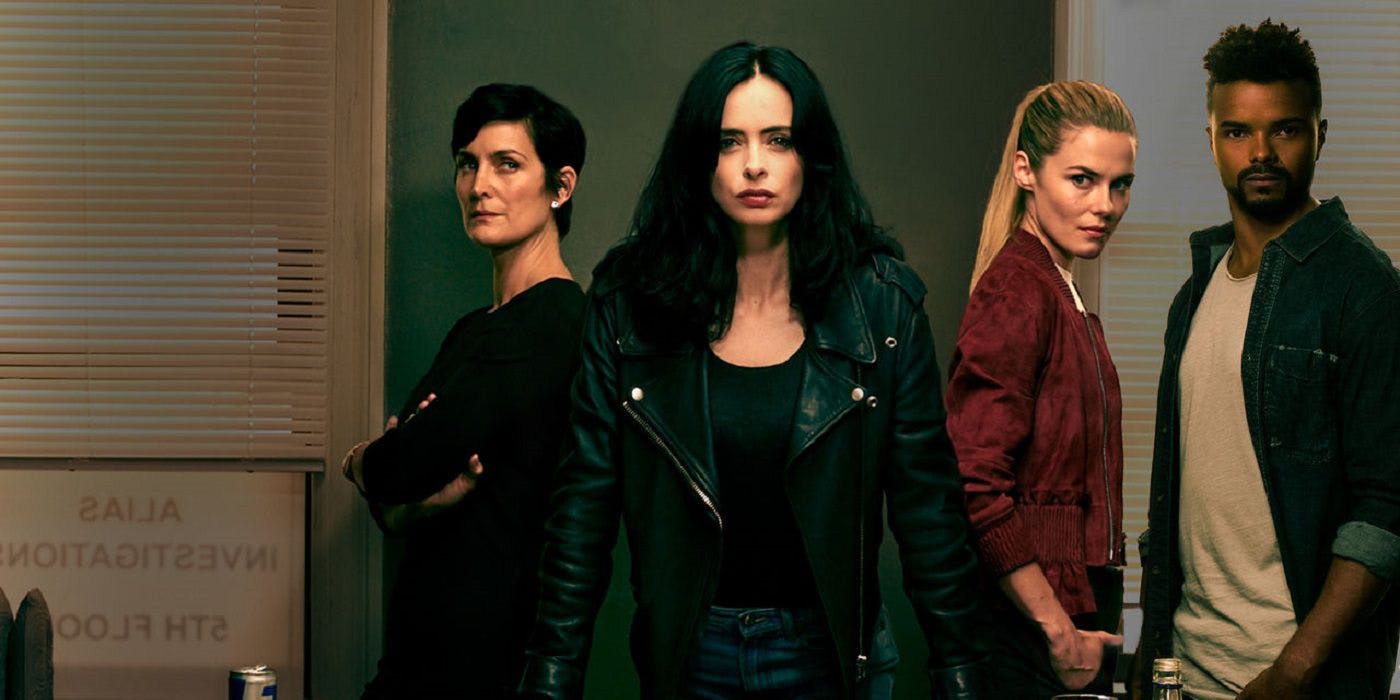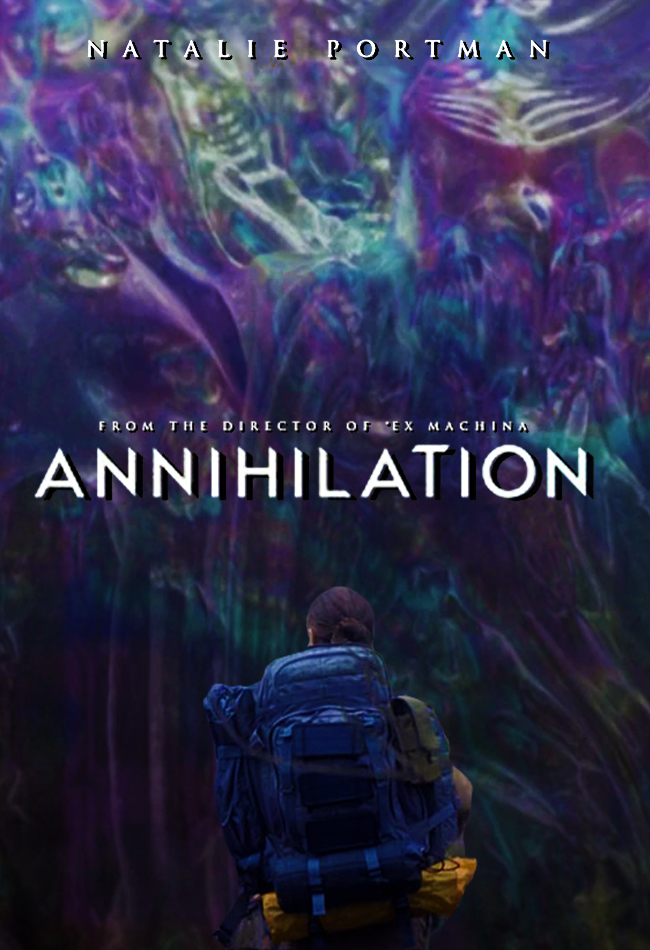 |
| Alfred, Darius, and Earn - just three guys trying to get by. |
Atlanta is the brainchild of co-creator/writer/actor/stand-up comedian/musician Donald Glover. I remember hearing about it back when it was first airing on FX, in the autumn of 2016. It sounded interesting, and it was receiving more than a little glowing praise, but I just never quite worked it into my rotation. Now that I got around to watching the very manageable season of ten 25-minute episodes, it's become one of my new favorites.
The show mostly follows Earnest "Earn" Marks (Glover), a local Atlanta guy who has dropped out of Princeton to return home and try to make his way. The smart but rudderless Earn is floundering in a lame job in an effort to support his infant daughter and maintain a healthy though complicated relationship with Vanessa (Zazie Beetz), the mother of his daughter. Earn decides his best chance for financial security is to try and manage the budding rap career of his cousin Alfred, known better by his rap alias "Paper Boi." Alfred is a low-level weed dealer in the area, and his very modest success as a rapper just barely allows him to keep his head afloat. Though skeptical of Earn's qualifications to manage him, Alfred gives Earn a shot. Around this central story, the show is an avenue for Donald Glover to comment on African-American culture in Atlanta through both intimate relationships between close friends and the wider lens of the chaos swirling around impoverished minority peoples and modern entertainment culture.
If you read or hear anything about Atlanta, you are likely to come across phrases such as "one-of-a-kind" and "unlike anything else." Such descriptions are very well earned, as I can only think of a few shows that Atlanta resembles. It really is its own animal, being an engaging blend of comedy, surreality, sharp social commentary, and poignant drama. The closest thing that I've seen to it is Louis C.K.'s hit show Louis, which was also on FX. In that show, we often got the now-shamed comedian's slanted, bizarre, and insightful takes on living in New York City, his life as a father, his career as a stand-up comedian, and occasionally his views on certain areas of friction within our society, all done from C.K.'s keenly odd and creative perspective. Atlanta shares that same scope and willingness to use the strange to illustrate just how confounding life can be at times. It also shares the ability to regularly make its viewers break down laughing.
Delving into the specifics of plot or character of this first season is somewhat pointless, as this show goes far beyond any simple breakdown of what the characters want and how they get there. Yes, the goal of Earn and Alfred to become successful in the rap world is compelling, but it's much more about what Alfred's rap means to him and those on his periphery, and how those views can differ wildly. Yes, the relationship between Earn and Van is an emotional anchor of sorts, but it is hardly a traditional drama tale. And then there are the eminently quirky but oh-so-familiar characters like Darius (Lakeith Stanfield), a sort of Cosmo Kramer in Glover's vision of Atlanta. Darius is a brilliant space cadet, and in other, lesser shows, such a character would probably be more prominently featured and likely overused. Here, though, he is an efficiently-used accent piece to the odd and generally amiable fellows who you can find in places a little higher on the "stress" scale.
The hype is justified on this one, and I'm eager to get into the second season.
| The crew spend most of the first half of this season in a future where things have gone horribly wrong for Earth. |
Spoiler-Free Section
Another highly enjoyable season of Marvel's flagship "Cinematic Universe" TV show, and one that would have served a solid final act for the entire series, had it come to that.
The previous season of SHIELD had ended with the crew extricating themselves from the Matrix-like artificial world of "The Framework" and defeating the powerful synthetic human, Aida. No sooner had Phil Coulson and his team been able to enjoy their return to reality than they were whisked off to an unknown place by some mysterious figure. Season five reveals that that unknown place was a slave colony on a floating asteroid, and that the mysterious when was approximately 60 years into the future. Even more horrifying is that the asteroid colony, known as "The Lighthouse," is one of the last remnants of a planet Earth that has been completely torn apart by some being or force known only as "The Destroyer of Worlds."
This season of the show was basically divided into two parts: the first telling how Coulson and the team escape the nightmare future they've been pulled into, and the second being a race to prevent that hellish future from happening. It's a structure that the show-runners and writers have used well in earlier seasons, and this one follows suit. One of the primary strengths of this show has, initial ten or so episode aside, always been the plotting and pace. The most recent season only further solidifies my opinion in this regard, as the arc unfolds in a very satisfactory way, with each and every episode adding or building on fascinating revelations and surprises. It was also a ton of fun to see the show-runners, who had stated that they were approaching this season as if it were going to be the final one, pull together many of the elements and still-dangling threads from earlier seasons into a fairly cohesive whole.
Now, I will readily admit that Agents of SHIELD has never been the very best MCU show in terms of sophisticated, realistic relationships or complex issues. Yes, it does play around in some gray and even darker areas enough to keep things interesting for a discerning adult like me, but it has never been nor should it be dealing with the mature themes that the Netflix MCU shows like Jessica Jones or The Punisher. Agents of SHIELD has always been more about likable secret agents and their super-powered allies stopping equally secretive and powerful forces of evil. While there is some compelling character development (the Fitzsimmons arc has always been the best, by far), certain characters have always felt a bit dull to me. While there are often some thoughtful and funny lines, it can just as often feel a bit forced or even hokey. Any shortcomings, though, I find are easily overlooked in light of the general fun of the fantasy/action/suspense story that runs through each 22-episode season. It is all but impossible to guess exactly where season five ends up, based on where it begins, and the surprises are often satisfying. This is what I want from this kind of show, and SHIELD gave it to me again. Despite an even tighter budget than previous seasons, it showed what good writers and actors can do with limited resources in terms of sets and costumes, further emphasizing what an epic fail the rightfully-canceled Inhumans show was.
I was glad to read recently that the show has, indeed, been renewed for a sixth season. I would actually like to see it get a little more support from ABC, but I doubt that will happen. It looks like SHIELD has truly moved on from a couple of mainstay characters, allowing some of the younger ones to develop and take over, which is a move that I'll be glad to see play out, for the most part. I also just saw that the next season is slated for a significantly-shorter 13-episodes. This could actually be a very good thing, with the writers not having to use any filler or tack on less-than-engaging secondary plots, such as this season's dynamic between General Hale and her daughter. Five seasons and over 100 episodes on, and I'm still all-on on this show.
| I found Kasius a rather boring villain - he was your pretty standard arrogant, aristocratic sadist. We've seen plenty of those in TV shows and films over the years. |
A few thoughts on specific plot points and other developments.
During the first half of the season, I found the Kasius character mostly annoying and fairly boring. Then again, I've always found purely evil, power-hungry sadists boring. Sure, they tend to make for a pretty satisfying "revenge kill" when they inevitably get taken down, but they're rather predictable.
The first half of the season, in "future space," was definitely the weaker part of the season. While I thought the overall time-jumping plot was good, especially with how they worked Fitz back into it, I found the setting a bit drab and the villains not nearly as compelling as others we've seen over the show's history.
While this season saw the welcome return of certain characters like Carl "The Absorbing Man" Creel and a few others, I really disliked the writing and casting for Ruby. Former Disney star Dove Cameron seems like a decent enough actor, but I never for a moment bought her as the sadistic, psychotic, superpowered ninja that she was meant to be. Partly it was the writing, but it was also simply that her doll-like face and curvy body just aesthetically did not fit the role for me. Catherine Dent as her mother General Hale, on the other hand, was excellent.
So it looks like they're finally going to have another major character die, with Coulson's incurable disease seemingly going to do him in. I'm quite fine with that, but I cannot say that I'm thrilled with Mack taking over. While I've always liked the idea of Mack - a powerfully built gentle giant who's a top-notch engineer - I've also found him to be somewhat dull. Oddly, the final two episodes really let him get pretty "Jesusy" on us, even spouting out lines like, "You only need faith in the Good Book!" And I still, even after four seasons of the character, feel like we don't have a completely accurate handle on who the guy is. He fires off some of the best one-liners, but he's also a massive wet blanket at times. Oh, and the shotgun ax really is one of the dumbest, least-practical attempts I've ever seen at a "signature" weapon in a TV show or movie. I don't hate the character, but he's never been as compelling to me as Fitz, Simmons, or nearly any of the rest of the SHIELD roster.
While I found the end of the season satisfying, I thought they could have shown a little more creativity in some of the resolutions to the major issues. For the entire season, we're being told of how time is immutable. This is actually one of the more fascinating conundrums that the team has to face - how will they somehow change what seems to be scientifically inevitable? Well, the show never really does completely explain that. It just...has Daisy win. And the way that she beats Talbot (his breaking bad was a plot turn, by the way, that I really enjoyed) wasn't particularly clever, either. I must admit, though, that quaking the guy right through the atmosphere and into space was pretty cool.






